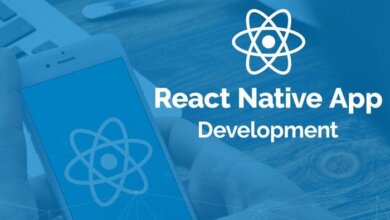The startup app landscape has never been more competitive—or more promising. With over 6.3 billion smartphone users worldwide and app revenues projected to reach $935 billion by 2025, the opportunity is massive. But here’s the challenge: where do you actually start, and which development partner will give you the best chance of success?
After analyzing hundreds of startup app launches and working closely with development teams across the globe, I’ve discovered that your choice of development partner can make or break your entire venture. Let me walk you through the critical decisions that will determine your app’s fate.
The Startup App Reality Check: Why Most Apps Fail
Before diving into where to start, let’s address the uncomfortable truth: 90% of startup apps never gain meaningful traction. It’s not because the ideas are bad—it’s because founders make critical mistakes in the development phase that doom their apps from day one.
The most common mistakes include:
- Choosing development partners based solely on price
- Skipping the market validation phase
- Over-engineering the first version
- Underestimating the importance of user experience
- Failing to plan for post-launch iterations
Understanding these pitfalls is crucial because they directly influence which type of development company you should partner with.
The Four Types of Development Partners (And When Each Makes Sense)
1. Freelance Developers: The Budget-Conscious Choice
Best for: Simple apps with basic functionality and tight budgets
Freelancers can be incredibly talented, but they come with inherent limitations. You’re typically working with one or two people who handle everything from design to backend development. This works well for straightforward apps but becomes problematic when you need specialized expertise or rapid scaling.
Pros:
- Lower upfront costs
- Direct communication
- Flexibility in project scope
Cons:
- Limited expertise across all areas
- No backup if the developer becomes unavailable
- Longer development timelines
- Minimal ongoing support
2. Offshore Development Teams: The Volume Play
Best for: Startups with clear specifications and project management experience
Countries like India, Ukraine, and the Philippines offer skilled developers at competitive rates. However, success with offshore teams requires strong project management skills and crystal-clear requirements documentation.
Pros:
- Cost-effective for larger projects
- Access to specialized skills
- Scalable team size
Cons:
- Communication challenges
- Time zone differences
- Quality control issues
- Cultural and process differences
3. Local Development Agencies: The Premium Option
Best for: Well-funded startups with complex requirements
These agencies offer the full package: strategy, design, development, and ongoing support. They’re typically more expensive but provide higher quality and better communication.
Pros:
- Comprehensive expertise
- Strong project management
- Local market understanding
- Easier communication and collaboration
Cons:
- Higher costs
- Potentially slower to adapt to changes
- May not specialize in startup needs
4. Specialized Startup App Development Companies: The Strategic Choice
Best for: Entrepreneurs who want expertise specifically tailored to startup challenges
This is where companies like Appkodes startup app development company excel. They understand the unique constraints and requirements of startups, offering solutions that balance cost, speed, and quality specifically for emerging businesses.
Why Specialized Startup Development Companies Win
Deep Understanding of Startup Constraints
Traditional agencies often approach startup projects the same way they handle enterprise clients. Specialized startup app development companies understand that you need to move fast, iterate quickly, and validate concepts with minimal investment.
Appkodes startup app development company, for example, has developed frameworks specifically for rapid MVP development, allowing startups to test their concepts in weeks rather than months.
Proven Methodologies for Startup Success
Generic development companies follow standard software development practices. Startup-focused companies have refined their processes specifically for the unique challenges of building products with uncertain market fit.
This includes:
- Rapid prototyping techniques
- Built-in analytics and feedback collection
- Scalable architecture that grows with your user base
- Cost-effective technology stacks proven in startup environments
Industry-Specific Expertise
Many specialized companies have deep experience in specific verticals. This means they understand not just how to build apps, but how to build apps that succeed in your particular industry.
For instance, if you’re building a fintech app, working with a company that has successfully launched similar products means they already understand regulatory requirements, security standards, and user behavior patterns specific to financial services.
The Geographic Advantage: Where Location Still Matters
Silicon Valley: The Innovation Hub
Pros: Access to top talent, investor networks, and cutting-edge technologies Cons: Extremely high costs, intense competition for talent Best for: Well-funded startups with complex technical requirements
Austin, Seattle, Denver: The Emerging Tech Cities
Pros: Growing tech ecosystems, lower costs than Silicon Valley, good talent pools Cons: Smaller networks, fewer specialized service providers Best for: Startups balancing cost and access to talent
India: The Global Development Center
Pros: Large talent pool, cost-effective solutions, strong technical expertise Cons: Communication challenges, quality variations, time zone differences Best for: Startups with clear specifications and strong project management
Eastern Europe: The Quality-Cost Sweet Spot
Pros: High-quality development, reasonable costs, cultural compatibility with Western markets Cons: Smaller talent pools, varying English proficiency Best for: Startups needing high-quality development at moderate costs
The Appkodes Advantage: A Case Study in Startup-Focused Development
When evaluating development partners, Appkodes startup app development company stands out for several reasons that directly address common startup pain points:
1. Rapid MVP Development
Appkodes has perfected the art of building functional MVPs in 4-6 weeks. Their framework allows startups to test core concepts quickly without over-investing in unproven features.
2. Scalable Architecture from Day One
Many development companies build MVPs that break when you need to scale. Appkodes startup app development company designs apps with growth in mind, using cloud-native architectures that can handle user growth without requiring complete rebuilds.
3. Industry-Specific Solutions
Rather than starting from scratch, Appkodes offers pre-built modules for common startup app types:
- E-commerce platforms
- On-demand service apps
- Social networking features
- Marketplace functionality
- Fintech components
4. Ongoing Partnership Model
Unlike traditional agencies that hand off completed projects, Appkodes maintains ongoing relationships with their startup clients, providing continuous optimization and feature development as companies grow.
How to Evaluate Development Partners: The Framework That Works
Technical Expertise Assessment
- Review their portfolio of similar projects
- Ask about their technology stack preferences and why
- Inquire about their approach to scalability and security
- Request references from previous startup clients
Startup-Specific Experience
- How many startup apps have they launched?
- What’s their average time-to-market for MVPs?
- Do they understand equity vs. cash payment models?
- Can they provide case studies of startup successes?
Communication and Process
- How do they handle project management and updates?
- What’s their approach to handling changing requirements?
- How do they incorporate user feedback into development cycles?
- What happens if you need to pivot your concept?
Post-Launch Support
- What ongoing support do they provide?
- How do they handle bug fixes and updates?
- Can they scale their team as your needs grow?
- Do they offer maintenance and optimization services?
The Decision Framework: Choosing Your Development Partner
Stage 1: Concept Validation (Budget: $5,000-$15,000)
At this stage, you need a partner who can quickly build testable prototypes. Appkodes startup app development company excels here with their rapid prototyping services that allow you to validate concepts with real users in weeks.
Stage 2: MVP Development (Budget: $15,000-$50,000)
This is where specialized startup companies shine. You need someone who understands the balance between functionality and speed-to-market. Generic agencies often over-engineer MVPs, while freelancers may lack the expertise for proper architecture.
Stage 3: Growth and Scaling (Budget: $50,000+)
As your app gains traction, you need a partner who can scale with you. This is where the ongoing relationship model becomes crucial. Companies like Appkodes that specialize in startup growth phases can provide the continuous development support you’ll need.
Red Flags to Avoid When Choosing a Development Partner
Development Companies That:
- Promise unrealistic timelines
- Don’t ask detailed questions about your business model
- Can’t show relevant startup experience
- Focus solely on technical features without discussing user experience
- Don’t discuss post-launch support and maintenance
Warning Signs in Proposals:
- Extremely low bids that seem too good to be true
- Vague project timelines and deliverables
- No mention of testing or quality assurance
- Lack of ongoing support options
- No discussion of intellectual property ownership
Making the Final Decision: Quality vs. Cost vs. Speed
The eternal startup triangle: you can optimize for two of these three factors, but rarely all three simultaneously. Here’s how to think about the trade-offs:
Optimizing for Speed + Quality
Choose an established startup app development company like Appkodes. You’ll pay premium rates but get faster delivery and higher quality. Best for: funded startups with competitive time pressures.
Optimizing for Speed + Cost
Work with experienced freelancers or small teams. Quality may vary, but you can move quickly without breaking the bank. Best for: bootstrap startups with strong technical oversight.
Optimizing for Quality + Cost
Partner with offshore development teams with proven track records. Expect longer timelines but high-quality outputs. Best for: startups with flexible launch windows.
The Bottom Line: Your Development Partner is Your Co-Founder
Choosing where to start your startup app isn’t just about finding someone to write code. You’re selecting a partner who will influence every aspect of your product’s success. The right development company becomes an extension of your team, understanding your vision and helping you navigate the countless decisions that will determine your app’s fate.
Appkodes startup app development company represents the evolution of development partnerships—moving beyond simple vendor relationships to strategic collaborations that increase your chances of success. They combine the cost-effectiveness startups need with the expertise and support that can make the difference between joining the 90% that fail and the 10% that thrive.
Your startup app’s success isn’t guaranteed by choosing the right development partner, but it’s almost certainly doomed by choosing the wrong one. Take the time to evaluate your options carefully, ask the right questions, and choose a partner who’s as invested in your success as you are.
Ready to start your startup app journey? Begin by clearly defining your concept, understanding your target market, and then finding a development partner who specializes in turning startup visions into successful applications.





